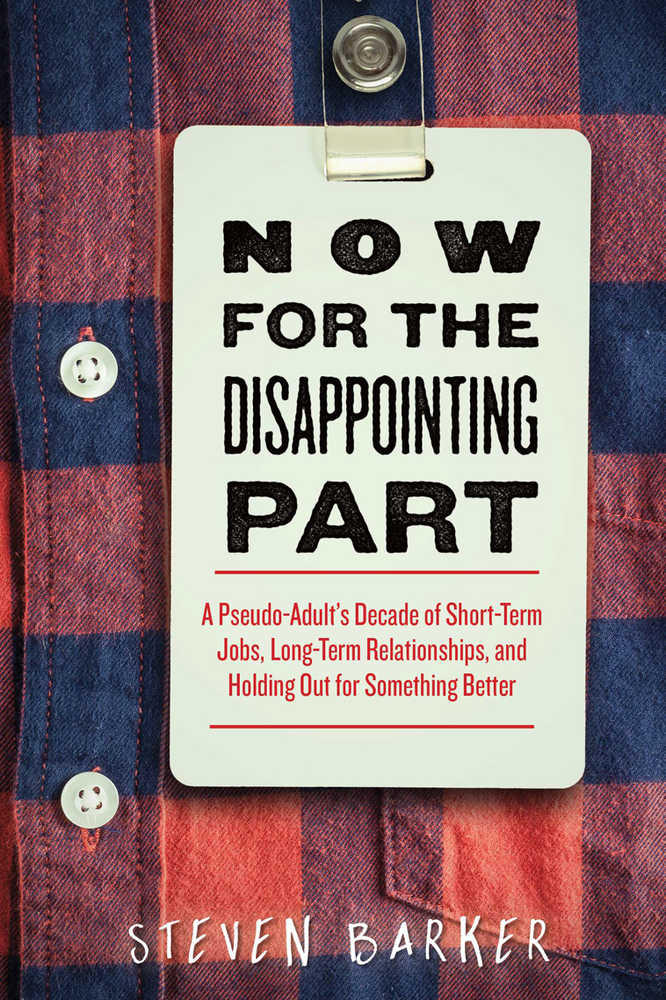Your father always told you to get a job.
He never let you wile away a summer, lying abed until noon. No, he usually rousted you before the birds got up. Time’s a-wastin’, he said, you’ve missed the best part of the day. Get a job. Find some work. Make your own money. But in the new book “Now for the Disappointing Part” by Steven Barker (c.2016, Skyhorse Press, $15.99, 256 pages), it wasn’t quite that easy.
The realization came like a bolt from above: when Steven Barker’s dad was 36 years old, he had a family, a mortgage, and a high-paying job. A decade out of college, Barker, at 36, was still working as a temp.
That hadn’t been the plan: Barker graduated with a degree in creative writing, and he longed to make a living from it. His dad had been a Company Man who’d moved the family from Toronto to America while he moved up the corporate ladder, and he set an example. He supported Barker’s dreams and he sometimes supported him financially, though Barker hated to ask for help.
Instead, Barker “committed to nothing,” and accepted jobs he hated while honing his writing skills on his off-time. Each job had a finite ending – some eagerly anticipated, some not – and he assumed that if something didn’t work out, the next thing might. Meanwhile, he procrastinated, stayed out too late, drank too much, and lost two girlfriends.
For a time, he lived in California, and worked at a medical supply warehouse. He moved to Seattle and got a job writing online travel descriptions. He accepted several positions with a major online company, and checked out a delivery position at another business. He turned down a pay-for-click writing gig, labeled mittens for pay, delivered pizzas, and collected a lot of unemployment.
He wanted a job. A real, permanent job.
Or was this a better road to his dream?
As much as I loved reading “Now for the Disappointing Part,” and entertaining as it is, I kept wondering where it was going. It’s compelling and hard to put down, but what is its point?
I finally deduced that the answer was “not much,” unless you’re in one of two camps: Millennials (of which author Steven Barker says he is/is not), and the people who’ll be hiring tomorrow’s employees.
Barker’s experiences, he indicates, are not unusual for his generation. He and his peers have noted what their parents achieved – indeed, he often compares his circumstances to his father’s success – but their own career paths don’t parallel that of their elders. Barker, who says his work history was “based on choice,” can be flippant as he describes his attitude toward former employers and co-workers. He’s blunt, and he certainly can be profane but his tales may speak volumes to HR managers or business owners.
If you are not in management, you’ll be entertained nonetheless by this author’s behind-the-scenes tales, and you’ll laugh. If you are hiring, however, “Now for the Disappointing Part” is full of lessons, but it ain’t your father’s HR book.
The Bookworm is Terri Schlichenmeyer. Email her at bookwormsez@yahoo.com.

